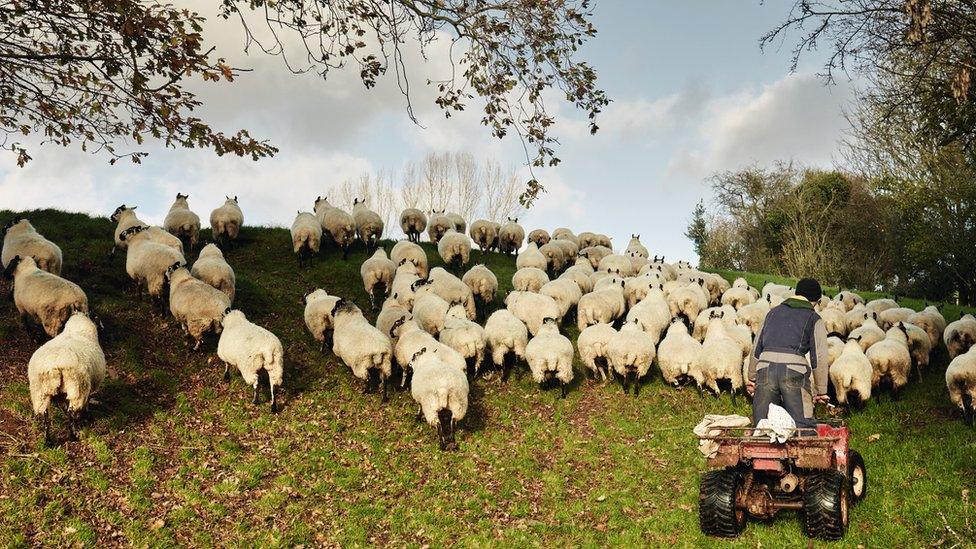Prolonged wet weather taking mental toll on North Yorkshire farmers
- Published
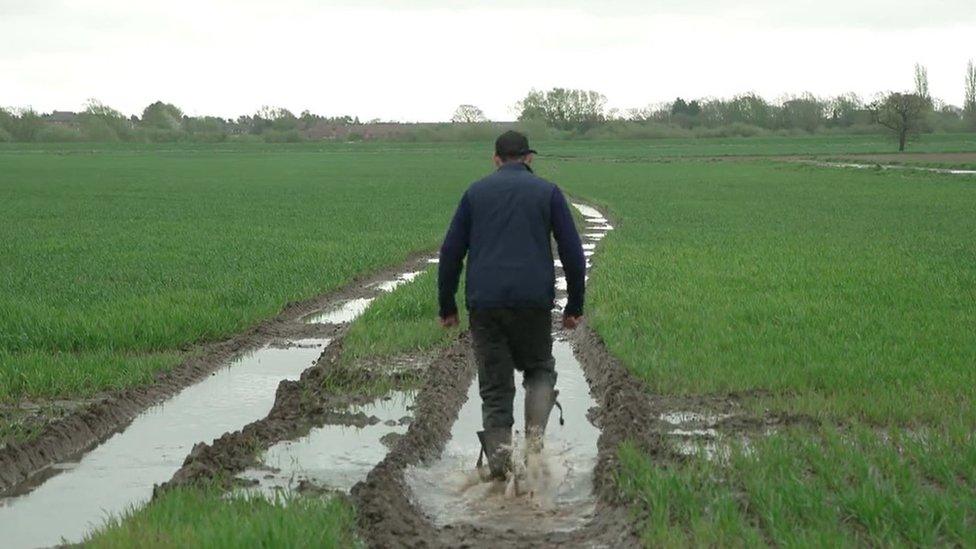
Farmer Charles Clark said there had been much more rainfall this year than they usually had
Prolonged wet weather is impacting the livelihoods and mental health of farmers, it has been claimed.
Persistent rain has left thousands of acres of land waterlogged with farmers unable to plant and grow their crops.
It comes as research found most young farmers in the UK are worried about the impact of the job on their mental health.
Farmer Richard Dent said the struggles had led to him taking anti-depressants and putting his business up for sale.
Mr Dent, a livestock farmer in Rosedale in the North Yorkshire Moors, said he had been impacted because the wet weather meant sheep had struggled on the land and his cattle have had to be brought in early.
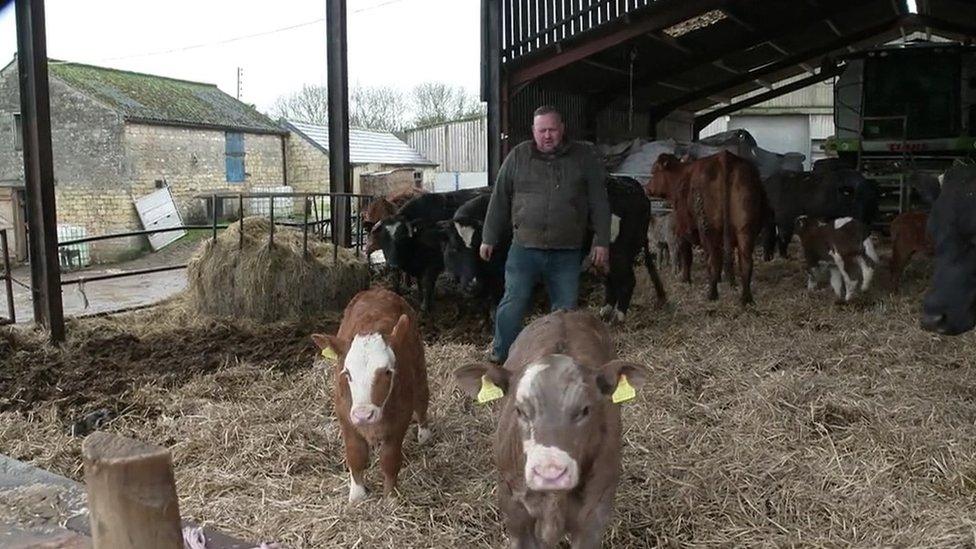
Richard Dent has put the family farm up for sale because the struggles have become too much
"This increases the food costs and where we buy our straw from, they aren't getting the crops in, so there will be a shortage of straw in the future and so it's just an ongoing cost increase."
Mr Dent said he had diversified his business as much as he could but the costs of being an upland farmer were too much and he had decided to sell the farm.
"It is so hard because we've got to transport everything and costs are just spiralling nowadays."
Arable farmer Charles Clark, based in Selby, said because his land is on the edge of the River Ouse, he had been doubly impacted by heavy rain and flooding.
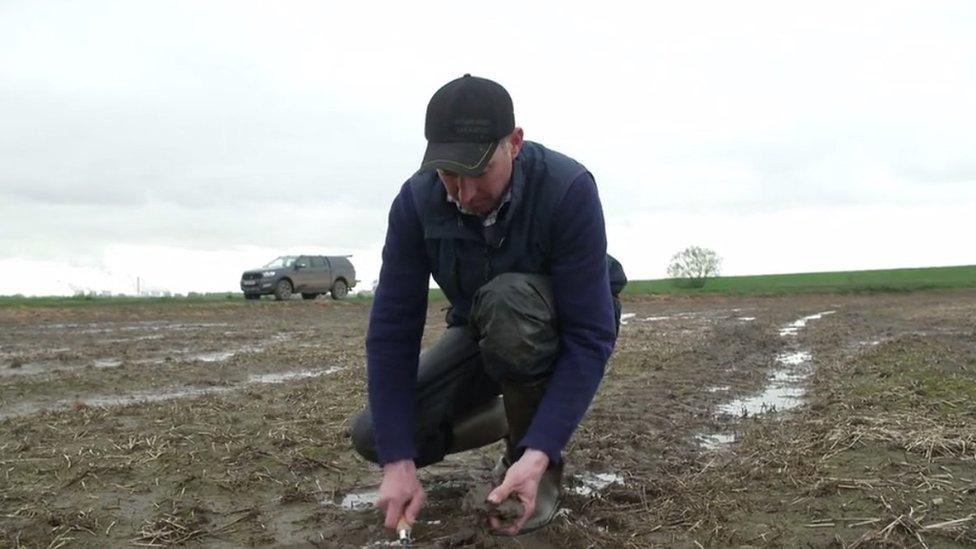
Mr Clark said it was very stressul worrying about when a flood would hit
A fourth generation farmer, he said his 600 acres of land was "absolutely saturated" and he was in a "real desperate situation".
"The River Ouse overtops when it we're in a flood situation. You can hear it from my bedroom when it comes over, it's very, very aggressive.
"When this flood plain is full, it's the same size as Lake Winderemere."
'Huge financial implications'
He said while he accepted his land would flood, it was frustrating that water was left for weeks, impacting his ability to grow crops.
"We're nearly in second week of April and the ground is absolutely saturated. There's simply no way we can get any spring crops unless it dries up in the next 10 days
"I keep praying and hoping that we will get some more modern infrastructure to get rid of the water so that me as a farmer can start to recrop the land and get some food out."
As well as the mental toll it had taken, Mr Clark said it had "huge financial implications".
He added: "I have staff, machinery, all parked up ready to go. I just hope we can get through this year and next year will be better."
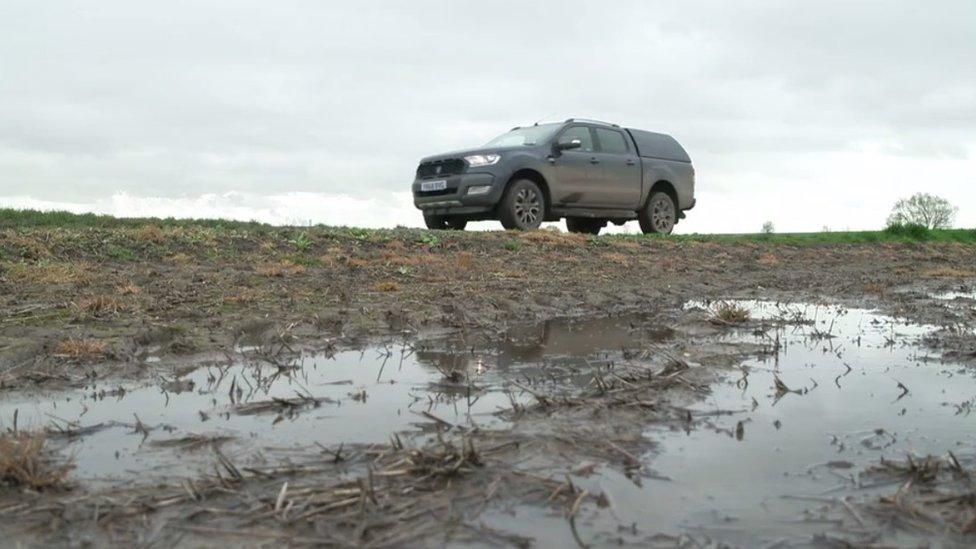
Charles Clark's farmland in Selby is waterlogged
Earlier this year, charity the Farm Safety Foundation carried out research which found four out of five farmers under the age of 40 believed mental health was the biggest hidden problem facing farmers today.
Stephanie Berkeley, from the charity, urged farmers to check to see whether they were eligible to apply for a government grant.
She added: "We also know that farmers have a problem and a stigma attached to them about opening up about their mental health so I would encourage them to stay in touch with each other and open up if they feel things are getting out of hand.
The organisation has also created a national directory of support groups, external for those who are looking for help and information.
A spokesperson for the Department for Environment and Rural Affairs said the government was "acutely aware of the impact extreme weather can have on the farming community" and said it had worked to "protect 900,000 acres of agricultural land from the impacts of flooding since 2015" was investing £5.6bn to "better protect communities from flooding and coastal erosion".
If you've been affected by the issues raised in this report, the BBC Action Line has a list of organisations that may be able to help.

Follow BBC Yorkshire on Facebook, external, X (formerly Twitter), external and Instagram, external. Send your story ideas to yorkslincs.news@bbc.co.uk, external
Related topics
- Published5 April 2024
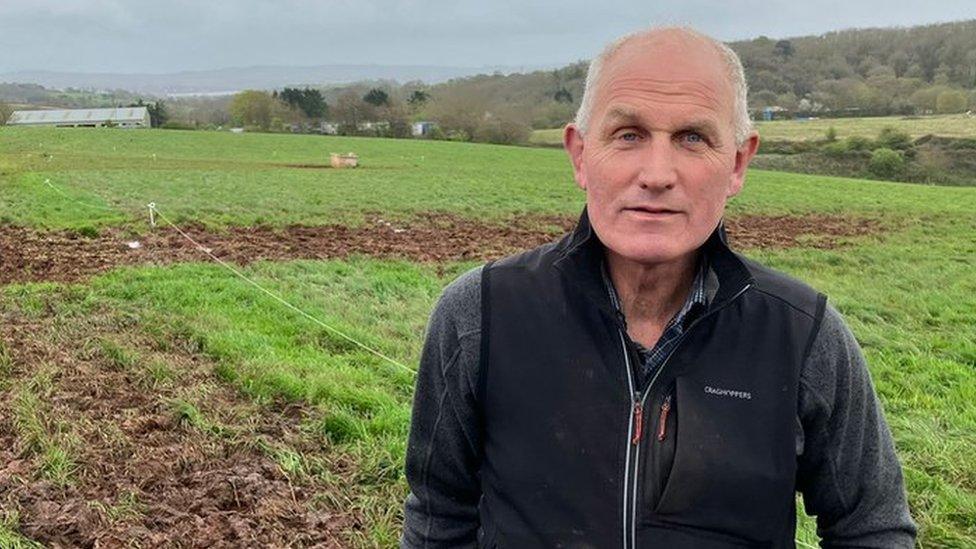
- Published30 December 2023
